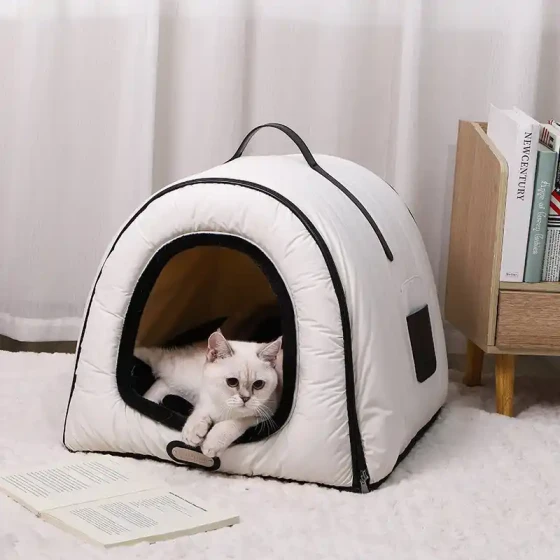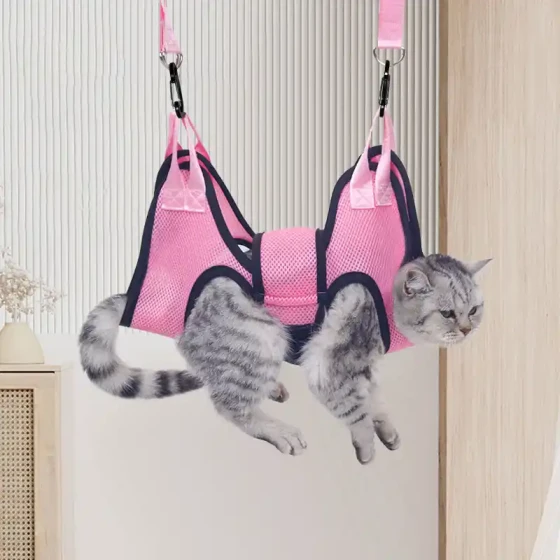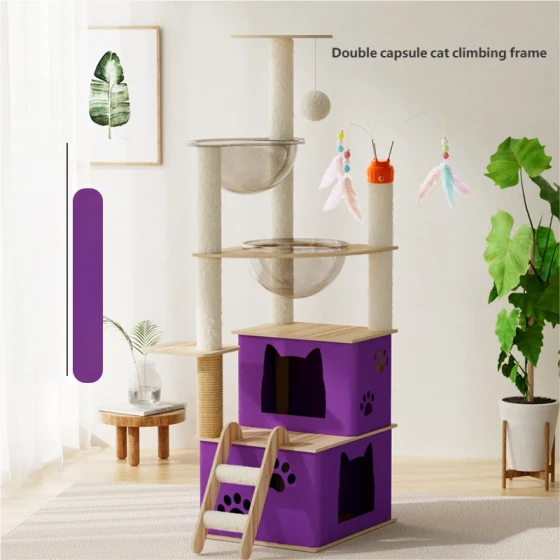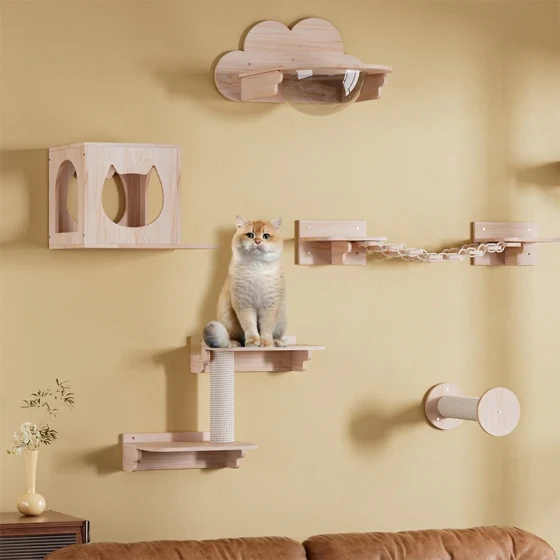How Much Sleep Do Cats Need Every Day_Full Analysis of Cat Sleep Time
How long exactly do cats need to sleep in a day? This is a question many cat owners care about. In fact, just like humans, the sleep duration of cats is influenced by multiple factors, but generally speaking, their “standby time” is quite considerable.
Simply put, a healthy adult cat needs about 12 to 16 hours of sleep per day, although some cats can even sleep up to 18 hours! Sounds like a lot, right? Hold on, there is a lot of science behind this.
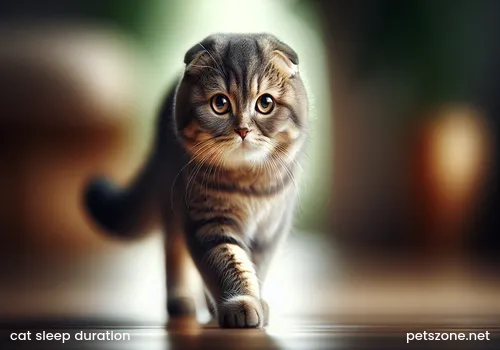
Why do cats need to sleep so long?
The reason cats are "sleep gods" is related to their ancestors and hunting habits. Cats are natural hunters, and even domestic kittens retain the genes for hunting. Hunting is a very energy-consuming process that requires bursts of power, speed, and agility. Therefore, to maintain their best state when awake, cats need a lot of sleep to store and restore energy.
Imagine if cats always had to be ready to "catch mice" (even if now it is just a cat toy), they have to remain energetic at all times. So sleeping a lot is not laziness, but part of their survival instinct.
Different cats have different sleep times
Although there is a general average, the sleep duration of cats is not fixed and is influenced by many factors:
- Age:
- Kittens (young cats): Newly born kittens sleep the longest, possibly up to 20 hours or more a day, mostly sleeping except for nursing. This is similar to human babies as sleep is vital for their growth and development.
- Adult cats: Most adult cats sleep between 12-16 hours.
- Senior cats: As cats enter old age, their activity decreases and sleep duration increases accordingly, possibly nearing or even exceeding that of kittens.
- Activity level: Outdoor cats or cats in enriched environments with frequent playtime tend to be awake longer. Whereas indoor cats with less activity naturally sleep more.
- Environment: A safe, comfortable, and quiet environment helps cats fall asleep better and enter deep sleep. If the home is noisy or stressful, their sleep quality may decline. Weather also affects sleep; for example, on rainy or cold days, cats tend to prefer curling up and sleeping more.
- Health condition: If cats are sick or uncomfortable, their sleep time may abnormally increase or decrease. If you notice significant changes in your cat’s sleep habits, it’s best to take them to the veterinarian promptly.
Cat sleep cycles: napping or deep sleep?
Cat sleep is not like sleeping through the night; they are typical "polyphasic sleepers," meaning they sleep multiple times during the day rather than all at night like humans.
Cat sleep can be divided into two main stages:
- Light sleep (napping): This stage accounts for most of a cat’s sleep time. Cats might just have their eyes half-closed, their bodies relaxed, but their ears stay alert and ready to respond to sounds or movements. It’s like when humans “nap” on the sofa, eyes closed but still instantly aware of environmental changes. During this stage, you might see their ears twitch occasionally or the tip of their tail lightly swing.
- Deep sleep (Rapid Eye Movement sleep, REM): This stage accounts for a small part of a cat’s sleep but is very important. In deep sleep, cats' bodies are completely relaxed, breathing becomes steady, and you might see their eyes moving quickly under their lids, paws or whiskers twitching, or even soft sounds, likely indicating dreaming. This stage helps their brain rest and process information.
Cats cycle between light and deep sleep, and they can instantly awaken from deep sleep to full alertness to be ready for action. This ability helps them survive in the wild, always prepared for hunting or escaping.
When should you worry about a cat’s sleep?
Although sleeping a lot is normal for cats, you should be concerned if there are significant and persistent changes in their sleep pattern:
- Sleeping too much: If a normally lively cat suddenly becomes lethargic, sleeps most of the time, unwilling to play or interact, and appetite or water intake changes, it may indicate underlying health issues such as infections, pain, or endocrine diseases.
- Sleeping too little or restless: If a cat’s sleep time significantly decreases or it appears restless with frequent changes of sleeping spots, this might suggest pain, discomfort, stress, or hyperthyroidism.
- Abnormal behaviors during sleep: If cats exhibit unusual twitching, stiffness, or other strange movements during sleep, while occasional dream twitches are normal, frequent or severe abnormal behaviors require veterinarian consultation.
In summary, paying attention to your cat’s daily behavior and sleep habits is crucial for understanding their health condition.
How to help cats have high-quality sleep?
As responsible cat owners, we can do some things to help cats rest better:
- Provide a comfortable, safe, and quiet sleeping environment: Prepare several cat beds or soft pads at different spots so they can choose where they like to sleep. Make sure these places are warm and away from noise, giving cats a sense of security.
- Regular routine: Try to keep feeding, playing, and sleeping times consistent to help cats build a stable biological clock.
- Adequate play: Arrange some physically engaging interactive games during the day to help cats sleep more soundly at night.
- Healthy diet: Provide balanced nutrition cat food to maintain their health, which indirectly affects sleep quality.
Frequently Asked Questions
- Q: My cat doesn’t sleep at night and runs around a lot; what should I do?
A: Cats are nocturnal animals, and being active at night is natural. Try playing vigorously with them 1-2 hours before bedtime to expend their energy. Also, avoid letting them sleep too much during the day. - Q: Why does my cat always sleep in strange places?
A: Cats choose their sleeping spots based on feelings of safety, temperature, and comfort. They might prefer small spaces (for security), high places (for observation), or warm spots. - Q: Is it normal for cats to snore while sleeping?
A: Mild snoring is normal in some cats, especially short-nosed breeds (like Persians). But loud, frequent snoring or breathing difficulties might signal respiratory problems and need veterinary attention. - Q: Is twitching during sleep normal for cats?
A: Slight twitching of paws, whiskers, or tails during sleep usually means the cat is in deep sleep (dreaming), which is normal.
Summary
Cats need a lot of sleep every day to stay healthy and energetic. Understanding their sleep habits, monitoring sleep time changes, and providing a good sleep environment are important tasks for cat owners. If you have any concerns about your cat’s sleep, don’t hesitate to seek professional veterinary help to ensure your furry friend grows healthily and happily.
